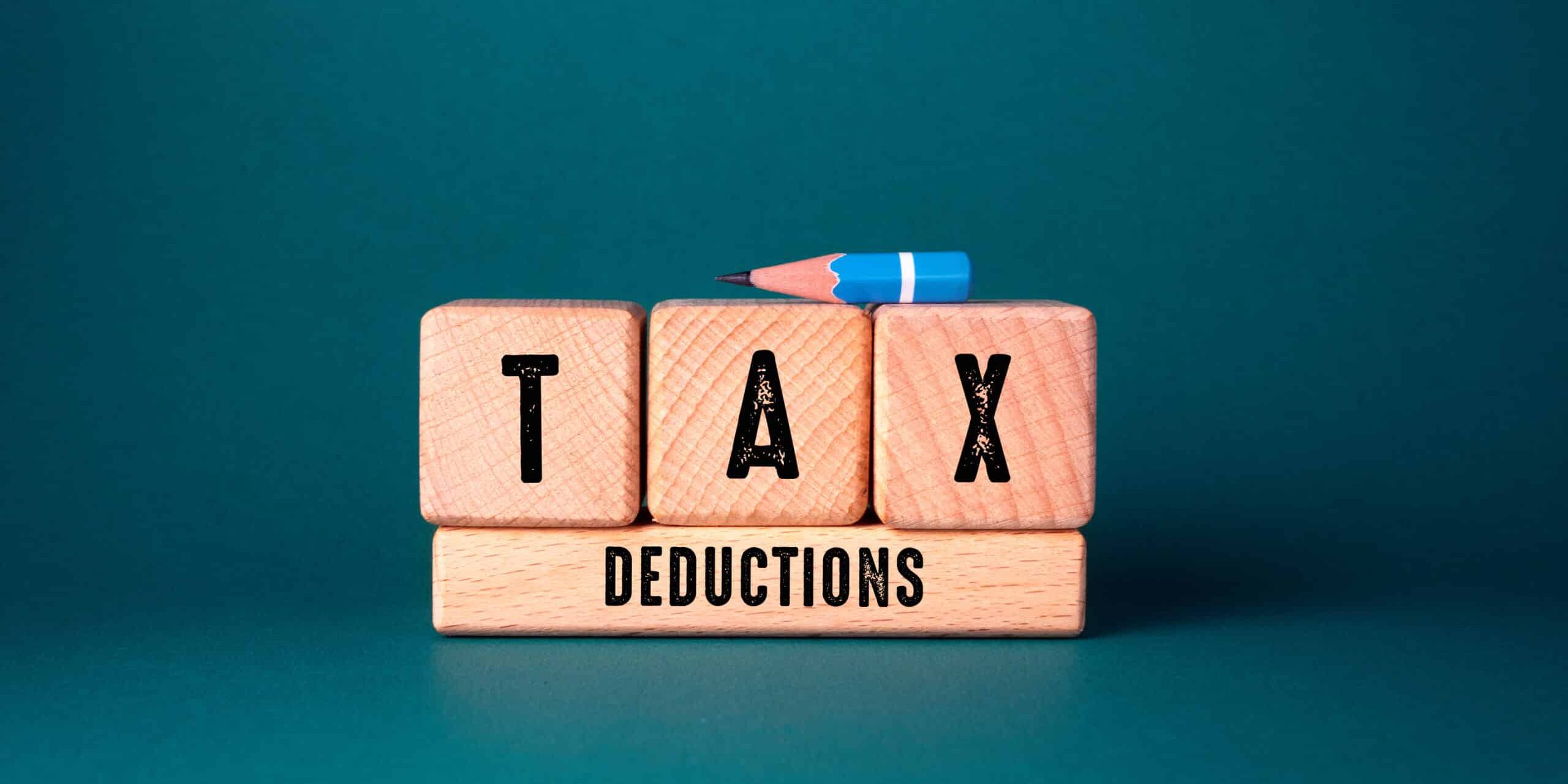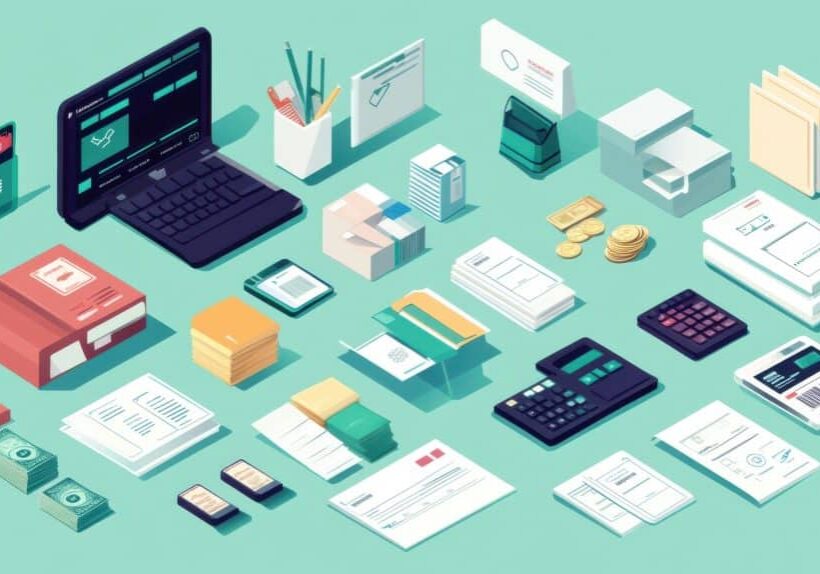
Business tax is tricky, and as a small business owner, navigating the world of taxes can feel like a never-ending maze. One of the best ways to get your bearings and reduce your tax burden is by making sure you’re taking full advantage of tax-deductible business expenses.
These deductions can significantly lower your taxable income, leaving you with more money to reinvest into your business or take home. But which expenses can you deduct, and what are the common pitfalls to avoid?
Common Tax-Deductible Expenses for Small Businesses
The most common tax-deductible expenses for small businesses are usually the basic operational costs. These are the necessary expenditures you make to keep your business running smoothly, and they’re fairly straightforward. Some of the most commonly deductible expenses include:
- Office Supplies & Equipment: From pens and paper to computers and printers, anything you purchase for your office space is generally deductible.
- Rent & Utilities: If you rent office space or work from a co-working space, that rent is deductible. Utility bills such as electricity, internet, and phone services also fall into this category.
- Employee Wages & Benefits: Salaries, wages, bonuses, and other employee-related expenses, including health insurance, are deductible as business expenses.
- Professional Services: Whether you need an accountant, lawyer, or consultant, the fees you pay to professionals to help manage your business are also deductible.
- Marketing & Advertising: Any costs associated with advertising your business—whether through digital marketing campaigns, social media ads, or print materials—can be written off.
These are the go-to expenses that most small businesses are familiar with, but what about the ones you might overlook?
Surprising Business Tax Deductions Business Owners Often Miss
While the basics are easy to track, there are a few surprising deductions that business owners often forget to claim. These small but significant expenses can add up over time. Here are some commonly overlooked deductions:
- Cell Phone & Internet: If you use your personal cell phone or internet connection for business purposes, a portion of these bills may be deductible. Just make sure you’re keeping good records of how much you use them for business versus personal use.
- Travel: Business trips, whether they’re local or out of state, can be deducted. But many business owners forget to track their mileage or document travel expenses properly. This is critical to ensure you’re not missing out on a valuable deduction.
- Software & Apps: Many small businesses rely on various apps and software for day-to-day operations—think project management tools, accounting software, and design programs. These subscriptions are deductible, but often go unnoticed.
- Retirement Contributions: Funding your retirement plan can help reduce your taxable income. Contributions to retirement accounts like IRAs or 401(k)s can be written off, and this is an easy deduction to overlook.
How to Track Your Deductible Expenses
One of the biggest challenges small business owners face is keeping track of all their deductible expenses throughout the year. If you aren’t organized, it’s easy to forget things or lose receipts, which can make tax time stressful. The easiest way to keep track is to:
- Use Accounting Software: There are many software tools available that automatically track your expenses, categorize them, and generate reports. QuickBooks, Xero, and FreshBooks are just a few popular options. These tools make it easier to monitor your deductible expenses throughout the year.
- Set Up a Separate Business Account: It’s essential to keep your business and personal finances separate. Having a designated business checking account and credit card will help you track your business expenses more accurately, reducing the chance of missing deductions.
Personal vs. Business Tax Deductions: What’s the Difference?
It’s important to understand the difference between personal and business deductions. The IRS treats these two categories very differently, and the rules are strict.
- Personal Deductions: You can only claim personal deductions on things like mortgage interest, state taxes, and charitable donations. These deductions only reduce your taxable income, not your tax bill.
- Business Deductions: The IRS allows businesses to deduct expenses necessary for the operation of the business. This includes a wide range of expenses, from rent and utilities to employee wages and professional services. The key is that these expenses must be for the purpose of conducting business. You can’t claim personal expenses as business deductions.
Navigating Gray Areas: Home Offices and Travel
Some deductions fall into gray areas, and home offices and travel expenses are two examples. Let’s take a closer look.
Home Office Deductions
Many small business owners work from home, and while the IRS allows a home office deduction, there are specific rules you must follow. For starters, your home office must be used exclusively for business purposes. This means you can’t have a personal TV or games in the same space.
If you’re an S-Corp owner, you can’t deduct home office expenses the same way as sole proprietors can. Instead, you may need to reimburse yourself for part of the home-related expenses like utilities and internet. And don’t forget—if you’re using your home office for business, a portion of your home’s utilities, rent, and even your internet service may be deductible.
Travel Deductions
Travel deductions can be tricky because you need to keep thorough records. The IRS requires you to track the following for business trips:
- Mileage: Keep a detailed log of the miles driven for business purposes. Apps like MileIQ can make this easier.
- Expenses: Document the cost of hotels, meals, flights, and any other expenses related to the business trip.
- Purpose: You need to note who you met with and what business was conducted.
Failure to keep accurate records can result in disallowance of your travel deductions, so be diligent!
Understanding Tax Credits vs. Tax Deductions
It’s also essential to understand the difference between business tax credits and business tax deductions, as they both affect your tax situation differently.
- Tax Deductions: These reduce your taxable income. For example, if you have $50,000 in income and $10,000 in deductions, you’ll only pay taxes on $40,000 of income.
- Tax Credits: Tax credits directly reduce your tax liability. If you owe $1,000 in taxes and you qualify for a $500 credit, you only owe $500.
In general, business tax credits have a more significant impact on your tax bill because they reduce the actual amount of taxes you owe. Deductions, on the other hand, just reduce your taxable income.
Wrapping Up
By keeping track of your expenses and understanding which ones are tax-deductible, you can save your business a significant amount of money when tax time comes around. The key is to stay organized, keep detailed records, and use software or systems that can help you manage everything. Whether it’s small items like office supplies or larger expenses like rent and employee wages, every little bit adds up. Make sure you’re taking advantage of every deduction available to you!
Tax laws can be complex, but with a little knowledge and a great CPA firm, you can ensure that you’re maximizing your business expenses and reducing your tax burden.


